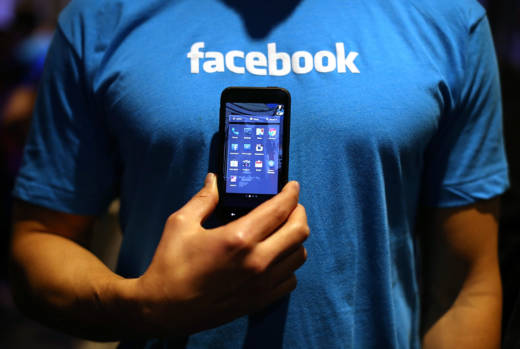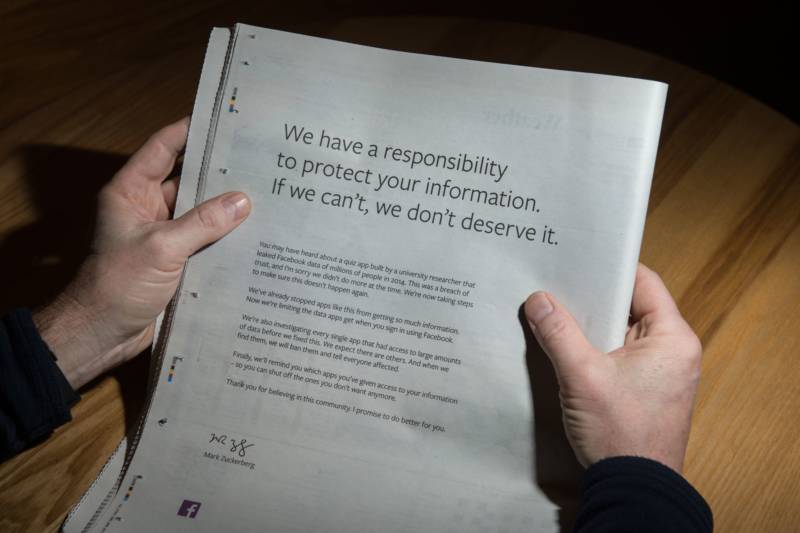On the same day Facebook bought ads in U.S. and British newspapers to apologize for the Cambridge Analytica scandal, the social media site faced new questions about collecting phone numbers and text messages from Android devices.
The website Ars Technica reported that users who checked data gathered by Facebook on them found that it had years of contact names, telephone numbers, call lengths and text messages.
Facebook said Sunday the information is uploaded to secure servers and comes only from Android users who opt in to allow it. Spokeswomen say the data are not sold or shared with users' friends or outside apps. They say the data are used "to improve people's experience across Facebook" by helping to connect with others.
The company also says in a website posting that it does not collect the content of text messages or calls. A spokeswoman told the Associated Press that Facebook uses the information to rank contacts in Messenger so they are easier to find and to suggest people to call.
Users get the option to allow data collection when they sign up for Messenger or Facebook Lite, the Facebook posting said. "If you chose to turn this feature on, we will begin to continuously log this information," the posting said.


